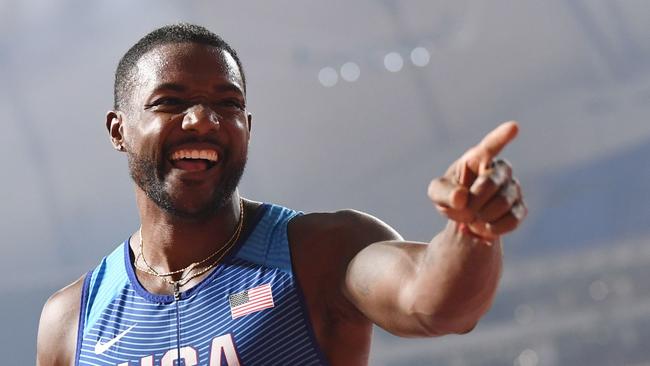Tokyo Olympics coronavirus delay a big win for banned doping cheats
The 2020 Tokyo Olympic Games will now be held in 2021, and the change in date is set to create a selection minefield with athletes who would have not been eligible earlier now legally allowed to compete.
Olympics
Don't miss out on the headlines from Olympics. Followed categories will be added to My News.
The one-year postponement of the 2020 Tokyo Olympics could open the door for convicted drug cheats to compete for medals, an issue that will need to addressed, United States Anti-Doping Agency (USADA) chief Travis Tygart says.
“This was an issue raised on a call of national anti-doping agencies from 21 countries today,” Tygart told Reuters on Tuesday.
“It is one of many complex issues that will have to be thought through and determined now that the Games have been postponed.”
Watch sport on Kayo. Anywhere. Anytime. Just $25/month, cancel anytime. New to Kayo? Get your 14-day free trial & start streaming instantly >

Currently, there is no exception for extending an anti-doping sanction for postponed events if the athlete or coach has served their ban when the competition takes place.
Tygart has held a longstanding position that those who have been sanctioned, like twice banned Olympic and world 100m champion Justin Gatlin, have under today’s rules served their time and are eligible to compete.
There are now new questions that some athletes, whose bans prevented them from competing in the Tokyo Olympics, will have the opportunity to do so due to the change in dates.
Anti-doping is at a standstill worldwide for the foreseeable future. We have no idea when it will return to any sort of normalcy.
— brad culp (@bbculp) March 24, 2020
Tokyo 2021 will be the dirtiest Olympics of all time. For all we know, Galen Rupp and Alberto Salazar are "isolating" together in Oregon.
If an athlete has served his or her ban and is denied a chance to qualify for an Olympic spot it is almost certain that such a ruling could be challenged in court.
With no precedent, the International Olympic Committee (IOC) or World Anti- Doping Agency (WADA) may have to consider a structure like that used by Major League Baseball, where a player suspended during the season for a performance- enhancing drug violation is not be eligible for that year’s post-season.
The doping question is sure to be one of many for the IOC, Tokyo organisers and WADA to address after IOC president Thomas Bach and Japanese Prime Minister Shinzo Abe agreed on Tuesday that the Games needed to be delayed for a year due to the threat posed by the coronavirus outbreak.
WADA, which will implement an updated Code in 2021, did not address the issue of athletes who were to miss the 2020 Games getting a lucky break and a chance to compete in Tokyo due to the postponement but need to ramp up testing after the problems of monitoring athletes because of the coronavirus outbreak. “With an eye on 2021, WADA looks forward to collaborating with the IOC, the International Paralympic Committee, the local organising committee and others to plan activities related to the Olympic and Paralympic Games, including pre-Games testing, education, the independent observer program and athlete outreach, which were in place for the 2020 Games that will now also be postponed,” WADA said in a statement.
Originally published as Tokyo Olympics coronavirus delay a big win for banned doping cheats


